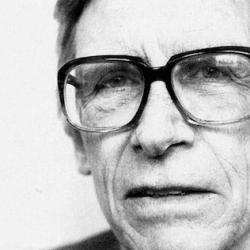John Rawls begins his Theory of Justice with what he describes as a “standard” social-scientific concept of rationality: “a rational person is thought to have a coherent set of preferences between the options open to him. He ranks these options according to how well they further his purposes; he follows the plan which will satisfy more of his desires rather than less, and which has the greater chance of being successfully executed” (25).
But there is one deviation from the standard conception, an explicit exclusion of envy: “The special assumption I make is that a rational individual does not suffer from envy. He is not ready to accept a loss for himself if only others have less as well. He is not downcast by the knowledge or perception that others have a larger index of primary social goods. Or at least this is true as long as the differences between himself and others do not exceed certain limits, and he does not believe that the existing inequalities are founded on injustice or are the result of letting chance work itself out for no compensating social purpose” (25).
Behind the veil of ignorance, everyone seeks to advance his ends without a sidelong glance at anyone else: “the persons in the original position try to acknowledge principles which advance their system of ends as far as possible. They do this by attempting to win for themselves the highest index of primary social goods, since this enables them to promote their conception of the good most effectively whatever it turns out to be. The parties do not seek to confer benefits or to impose injuries on one another; they are not moved by affection or rancor. Nor do they try to gain relative to each other; they are not envious or vain. Put in terms of a game, we might say: they strive for as high an absolute score as possible” (144).
Rawls brings envy and other disruptive passions back into play later in the argument, but he insists that “when the principles adopted are put into practice, they lead to social arrangements in which envy and other destructive feelings are not likely to be strong. The conception of justice eliminates the conditions that give rise to disruptive attitudes. It is, therefore, inherently stable” (144).
After initially ignoring the problem of envy and ascertained principles of justice on the basis of envy-less rationality, “we check to see whether just institutions so defined are likely to arouse and encourage these propensities to such an extent that the social system becomes unworkable and incompatible with human good. If so, the adoption of the conception of justice must be reconsidered. But should the inclinations engendered support just arrangements, or be easily accommodated by them, the first part of the argument is confirmed” (531).
Here, I’m less interested in Rawls’s argument in support of this conclusion than in the original exclusion. In various writings on Rawls, Jean-Pierre Dupuy has called attention to the “self-deconstruction of liberal order.”
His argument goes like this: Rawls entire theory is founded on rejection of utilitarianism, the notion that one member of a society may be sacrificed to enhance the advantages of the many. Every person must be treated as an end. Rawls thus grounds his theory on the twin foundations of rationality and rejection of the justice of sacrifice.
The problem is that you don’t need to be a utilitarian to accept sacrificial logic. In sacrificial situations (Sophie’s Choice; the trolley problem), a sacrificial choice is perfectly compatible with Rawls’s principle of unanimity. As Dupuy puts it, “In the case of Sophie’s Choice, with the sacrificial solution one child dies and the other lives; if the sacrifice is refused, both of them die. Now, the principle of unanimity is a minimal principle of rationality. Its self-evidence is difficult to deny, as is made manifest by the declaration of Caiaphas to the high priests and Pharisees, as recorded in the Gospel of John: ‘You understand nothing. You do not see that it is better that a single man die for the people and that the nation as a whole does not perish.'”
If Rawls’s own principles “justify the sacrificial solution in a sacrificial situation,” how does it differ from utilitarianism? Dupuy claims that Rawls’s acknowledges that :his theory does not apply to sacrificial situations. It is an ‘ideal’ theory that is only valid for a society already governed by the rawlsian principles of justice!”
The circularity is dizzying: “Utilitarianism is accused of favoring sacrifice in cases which rawlsian theory excludes from its own field of application; were it applied there, its principles would also justify sacrifice. And all this on the pretext that utilitarianism, unlike Rawls’s theory, claims to be universally applicable!”
For Dupuy, the fact that Rawls’s theory contains its own refutation (=self-deconstruction) is one of the merits of his work. It reveals “that the ethos of ‘democratic’ societies rests on an exclusion: the exclusion of those sacrificial situations precisely which the Theory excludes from its field of application. To put this another way: what the Theory excludes from its field of application is in fact constitutive of the Theory and is an integral part of it. The Theory tells us at least as much by what it rejects as by what it affirms.” Overtly, antisacrificial logic is superior to sacrificial; but in the excluded situations, the opposite obtains. And the excluded isn’t some side issue, but is constitutive of the domain of the theory.
This is relevant, Dupuy argues, to the exclusion of envy from the formulation of principles of justice. Sacrifice may, after all, be a result not of rational calculation but of envy. Rawls’s theory “asserts that it has nothing to do with the unleashing of envy and with sacrifice, but it is haunted by them. The liberal order discloses that it contains disorder, in both senses of the word ‘contain’—it has it within itself, and it holds it back. The tangled hierarchy between order and disorder is built into the liberal order.”











